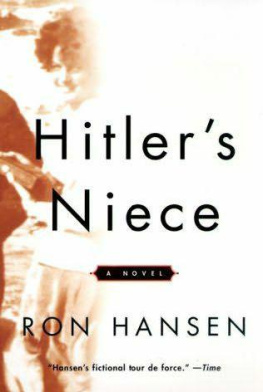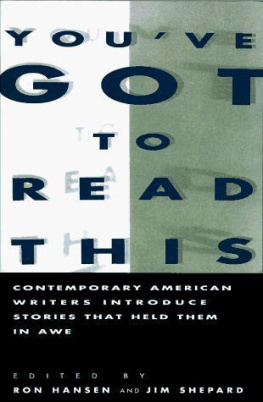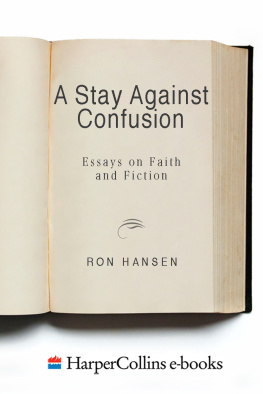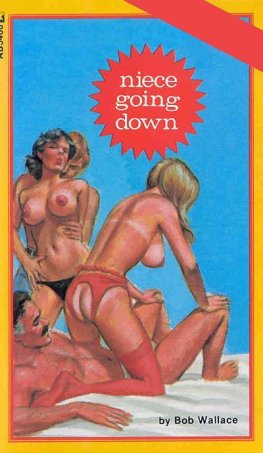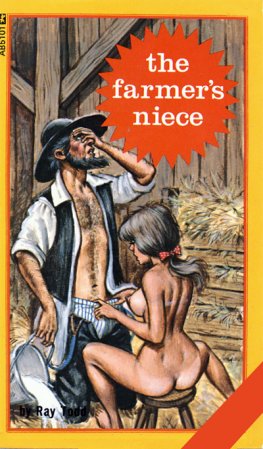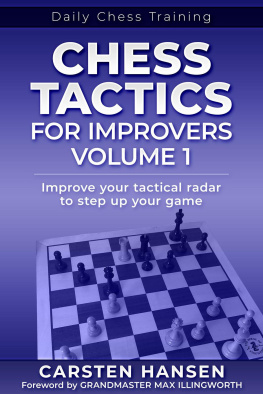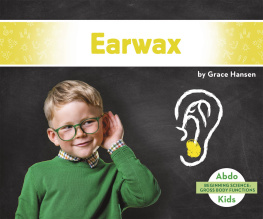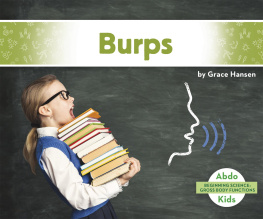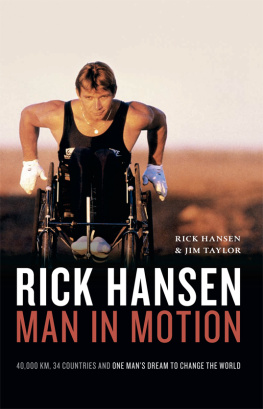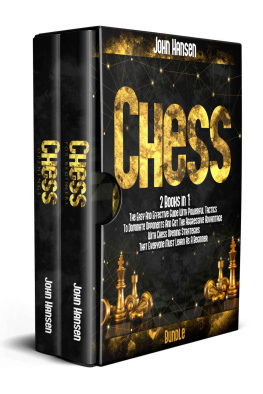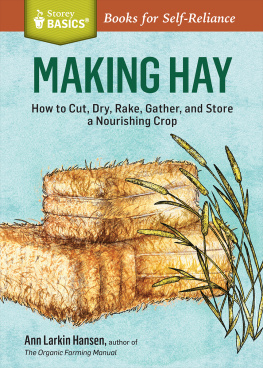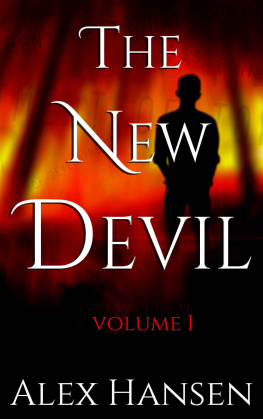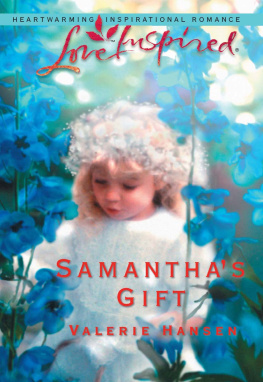Ron Hansen - Hitlers Niece
Here you can read online Ron Hansen - Hitlers Niece full text of the book (entire story) in english for free. Download pdf and epub, get meaning, cover and reviews about this ebook. year: 2000, publisher: Harper Perennial, genre: History. Description of the work, (preface) as well as reviews are available. Best literature library LitArk.com created for fans of good reading and offers a wide selection of genres:
Romance novel
Science fiction
Adventure
Detective
Science
History
Home and family
Prose
Art
Politics
Computer
Non-fiction
Religion
Business
Children
Humor
Choose a favorite category and find really read worthwhile books. Enjoy immersion in the world of imagination, feel the emotions of the characters or learn something new for yourself, make an fascinating discovery.
- Book:Hitlers Niece
- Author:
- Publisher:Harper Perennial
- Genre:
- Year:2000
- Rating:4 / 5
- Favourites:Add to favourites
- Your mark:
- 80
- 1
- 2
- 3
- 4
- 5
Hitlers Niece: summary, description and annotation
We offer to read an annotation, description, summary or preface (depends on what the author of the book "Hitlers Niece" wrote himself). If you haven't found the necessary information about the book — write in the comments, we will try to find it.
Ron Hansen: author's other books
Who wrote Hitlers Niece? Find out the surname, the name of the author of the book and a list of all author's works by series.
Hitlers Niece — read online for free the complete book (whole text) full work
Below is the text of the book, divided by pages. System saving the place of the last page read, allows you to conveniently read the book "Hitlers Niece" online for free, without having to search again every time where you left off. Put a bookmark, and you can go to the page where you finished reading at any time.
Font size:
Interval:
Bookmark:
Hitlers Niece
A Novel
Ron Hansen

For Bo
Contents
Linz, 1908
Schleissheimerstrasse 34, 1913
The Corporal and the Schatzkammer, 1919
The Beer Hall Putsch, 1923
The Merry Widow, 1923
Landsberg Fortress, 1924
Mnchen, 1925
Haus Wachenfeld, 1927
The Pension Klein, 1927
Hitlers Friends, 1928
Picnic, 1928
Next Door, 1929
Life Studies, 1929
Prinzregentenplatz 16, 1929
Elections, 1930
Das Braune Haus, 1931
Confessions, 1931
September 18, 1931
Afterward
L INZ , 1908
She was born in Linz, Austria, on June 4, 1908, when Hitler was nineteen and floundering in Wien, a failure at many things, and famished for food and attention. Within the month she was christened as Angelika (Ahn-GAY-leek-ah) Maria Raubal, in honor of her mother, Angela, Hitlers half-sister, but the family was soon calling the baby Geli (Gaily), as she was to be known all her life.
Hitler first saw his niece at a Sunday-afternoon party after the June baptism in the Alter Dom cathedral in Linz. Angela heard four hard knocks on the front screen door and found Adolf on Brgergasse in front of the Raubal house, looking skeletal and pale in a high, starched collar and red silk bow tie and the ill-fitting, soot-black suit hed worn at his mothers funeral in December; his wide, thin mustache so faint it seemed penciled on, his hair as chestnut brown as her own and as short as a five-day beard. With unquestioning love, Angela invited him in and hugged him, but it was like holding wood. And then she saw that hurrying up Brgergasse from the railway station was his only friend, August Kubizek, whose father owned an upholstery shop in Linz. Angela hugged him, too, saying, Weve missed you, Gustl.
And I, you.
She called to the kitchen, Leo! Paula! Look whos here! And then she noticed that her half-brother held a silk top hat in his hand and was absurdly twirling a black, ivory-handled cane, as if he were a gentleman of plenty. Aunt Johannas here, too, she said. And the Monsignor.
Oh, Lord, Hitler said.
Swerving out of the kitchen with a tankard of beer was Leo Raubal, Angelas husband, a flinty, twenty-nine-year-old junior tax inspector in Linz whose jacket and tie were now off. Everything Hitler loathed about his dead father, Leo Raubal professed to admire, and he seemed to be imitating the late Alois Hitler as he said, Why, its Lazy himself! The bohemian! Rembrandts only rival! Arent we honored to finally have you here!
Leo, be nice, Angela said.
Whos nicer than I? Im Saint Nicholas! Im a one-man charity!
Hitlers twelve-year-old sister, Paula, who suffered frequent trials with mental illness and would be nicknamed The Straggler, hung back in the kitchen, winding string around a fist and flirting a stare at Kubizek, whom she was fond of, until Hitler held out a present to her. I have a gift for you, Paula!
She scuttled forward in once white stockings and took the package, irresolutely staring at a festive wrapping of tissue paper that Hitler had hand-painted.
You can tear it, he said.
But I dont want to.
Oh, for Gods sake, do it! Leo Raubal said.
She tore off the paper and found underneath it a fat and difficult novel, Don Quixote . You say the title how? she asked. Hitler told her. She opened the book, and inside, where she hoped for a sentimental note from the older brother she worshiped, or even a To My Dear Paula, she instead found Hitlers handwritten list of other books in history, biography, politics, and literature that would possibly benefit her. Her face fractured with disappointment as she said, Thank you, Adolf, and hurried to put Don Quixote away.
What a treat, Raubal told Hitler. Girls really go for things like that.
Shes all right?
Raubal touched his head. Shes all wrong up here.
Aunt Johanna Plzl, the wealthy, hunchbacked, forty-five-year-old sister of Hitlers late mother, walked down the hallway from a bedroom. She smiled. I was taking a nap with Leo Junior when I heard your voice, Adi.
My favorite aunt! he said. My sweetest darling! Are you feeling well?
Oh, just tired, Aunt Johanna said. Im used to it. She held out her left hand and he kissed it, as did August Kubizek.
Angela got the baby from a bassinet and held the tiny girl up to Hitlers face so he could kiss her on the forehead.
Jiggling Gelis left hand with his index finger, her uncle said, Arent you pretty? She gripped the finger in her fist. Will the frulein allow me the pleasure of introducing myself? My name is Herr Adolfus Hitler.
Your uncle, Angelika, Angela said, and shook the baby, trying to get her to smile, but Geli only stared at his hair. See? She loves you.
And why not? he asked.
Leo Raubal called, August Kubizek! Would you like some good beer?
Walking into the kitchen, Kubizek said, Clearly I have some catching up to do.
Wont take but a pitcher, Raubal said.
Hitler stayed in the front room as Angela gave Geli to Aunt Johanna and went into the kitchen behind August in order to get out the potatoes in jackets. Canting back into the pantry with a full stein of beer was a stout and white-haired monsignor in rimless glasses and a pitch-black soutane with red buttons and piping. Welcome, Herr Kubizek! he too loudly said. Are you liking the Conservatory of Music?
Very much, Monsignor.
The childs a miracle at music, the old priest told Raubal. You play, what, violin, viola, piano. What else?
Also trumpet and trombone.
Amadeus Mozart, the old priest said.
Angela got a braising pan out of the oven and put it on an iron trivet on the kitchen table. We have potatoes in jackets here. And herring rolls in the icebox.
Raubal handed Kubizek a stein of beer and a cold skillet of sliced kielbasa in ale, then focused intently on his high forehead and his soft, feminine face. And what does our Adolf do in Wien while you study your music?
Oh, he works; very hard. Even to two or three in the morning.
Raubal was astonished. At what?
Watercolors of churches, parliament, the Belvedere Palace. Reading in Nordic and Teutonic mythology. Writing of all kinds. And city planning. Adolf strolls around the Ringstrasse in the afternoons, carefully observing, then redesigns sections of it at night. Amazing things, really. Architectural drawings for a new opera house. And plans for a high-level bridge over the Danube here in Linz.
Raubal smirked. Dare I presume no one pays him for this?
We have made friends with poverty, so there is no urgency.
Raubal told him, You know what Hitlers poverty is? An orphans pension of twenty-five kronen per month plus a loan from his Aunt Johanna of another thousand.
Angela asked, Are you going to want anything else to eat?
She was ignored. And what is my salary, Raubal continued, the hardworking husband and father of two children and the guardian of his crazy sister? Ninety kronen per month. Dont talk to me about your friendship with poverty. Raubal turned to the priest. Nineteen years old! And a thousand kronen to play with!
A fortune, the monsignor said.
Kubizek fixed his stare on the beer inside his stein. Wien is expensive, he said.
You get germs from money, Paula said. The twelve-year-old walked as softly as a kitten to a kitchen chair and sat. Torrents of them all over your skin.
Raubal stared at his sister-in-law for a moment, then turned to the monsignor. And this is what I have to put up with.
Well, its never easy, is it, the old priest said.
Angela went back into the front room and took the baby from Aunt Johanna. Hitler watched as Geli squirmed and widened her mouth and finally cried in a worn, soft, cranky way, like a hinge that needed oiling. Shes hungry, Angela said, and eased down onto the sofa where she mindlessly unbuttoned her blue dress and offered the infant a full and aching right breast. And then she realized that her offended half-brother had fled into the dining room where he looked out a window with his hands locked firmly behind his back. She remembered him hiding in his bedroom as he dressed, or holding his mouth in malaise when she talked about childbirth, that he was squeamish about anything having to do with the body.
Next pageFont size:
Interval:
Bookmark:
Similar books «Hitlers Niece»
Look at similar books to Hitlers Niece. We have selected literature similar in name and meaning in the hope of providing readers with more options to find new, interesting, not yet read works.
Discussion, reviews of the book Hitlers Niece and just readers' own opinions. Leave your comments, write what you think about the work, its meaning or the main characters. Specify what exactly you liked and what you didn't like, and why you think so.

